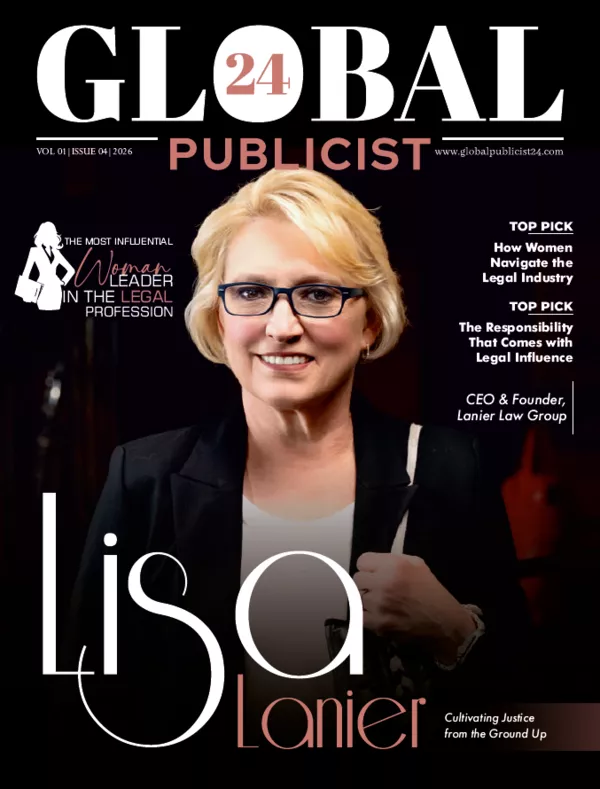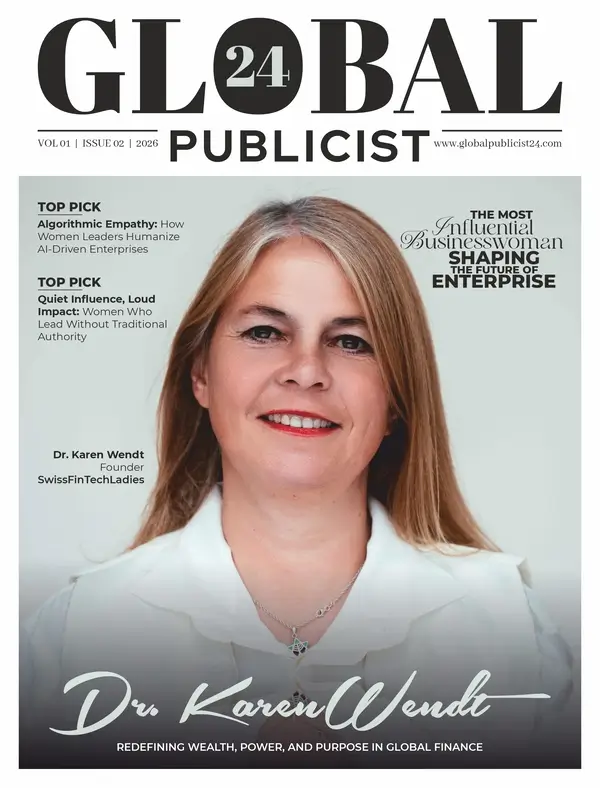Family law matters rank among the most emotionally challenging and financially consequential legal issues individuals face. Whether navigating divorce proceedings, establishing child custody arrangements, negotiating property settlements, or managing domestic violence interventions, the family lawyer you choose profoundly impacts both immediate outcomes and long-term wellbeing. Yet many Gold Coast residents select family lawyers based on superficial factors; proximity to home, lowest quoted fee, or whoever appears first in Google searches; rather than evaluating the specific qualifications, experience, and approach that determine successful representation. According to the Queensland Law Society’s 2024 Client Satisfaction Survey, 41% of family law clients expressed regret about their initial lawyer selection, citing mismatched communication styles, unexplained costs, or insufficient specialization in their specific legal issues. This guide examines five critical factors that separate truly qualified, client-focused family lawyers from those whose marketing presence exceeds their competence; helping Gold Coast residents make informed decisions during vulnerable life transitions when expert legal guidance matters most.
Understanding Family Law Practice Areas in Queensland
What Constitutes Family Law in Australia
Before evaluating family lawyers, understanding the scope of family law practice helps identify whether specific lawyers handle your particular matter:
Primary Family Law Practice Areas:
Divorce and Separation:
- Formal divorce applications under the Family Law Act 1975
- Separation agreements and financial arrangements
- Spousal maintenance claims
- De facto relationship dissolutions
Property and Financial Settlements:
- Division of matrimonial property and assets
- Superannuation splitting arrangements
- Business asset valuations and divisions
- Debt allocation between parties
Parenting Matters:
- Child custody and living arrangements
- Parenting time schedules and visitation
- Parental responsibility determinations
- Relocation disputes
Child Support:
- Child Support Agency assessments and reviews
- Departure applications and variations
- Binding child support agreements
- Enforcement of child support obligations
Domestic Violence:
- Domestic Violence Protection Orders (DVOs)
- Contravention applications
- Violence-related family law proceedings
Binding Financial Agreements:
- Prenuptial agreements (before marriage)
- Cohabitation agreements (de facto relationships)
- Post-separation financial agreements
Adoption and Surrogacy:
- Adoption applications and consents
- Surrogacy agreements and parenting orders
Not all family lawyers handle all these areas. Many specialize in specific niches; some focus exclusively on high-conflict custody disputes, others concentrate on complex property settlements involving business assets, while some specialize in domestic violence matters. Identifying lawyers with demonstrated expertise in your specific issue increases the likelihood of favorable outcomes.
Matter 1 – Verify Qualifications, Accreditation, and Specialization
Australian Legal Qualification Framework
Family law representation requires more than general legal knowledge. Queensland’s legal framework establishes specific requirements for practicing lawyers:
Minimum Qualifications:
- Bachelor of Laws (LLB) or Juris Doctor (JD) from accredited Australian university
- Completion of Practical Legal Training (PLT) through approved provider
- Admission to legal practice in Queensland (or interstate admission with local practicing certificate)
- Current practicing certificate issued by Queensland Law Society
Verify these credentials by checking the Queensland Law Society’s “Find a Lawyer” directory, which lists all lawyers authorized to practice in Queensland.
Accredited Family Law Specialists
The Queensland Law Society operates a specialist accreditation program recognizing lawyers with advanced expertise in specific practice areas. Family Law Specialist Accreditation requires:
Substantial Practice Experience:
- Minimum 5 years post-admission practice
- At least 25% of practice devoted to family law over preceding 3 years
- Demonstrated handling of complex family law matters
Advanced Knowledge:
- Passing comprehensive written examination covering Family Law Act, case law, and procedure
- Demonstrating practical application of family law principles
- Understanding of recent legislative and judicial developments
Peer Recognition:
- References from judicial officers and senior practitioners
- Evaluation of professional competence and ethical standards
- Assessment of communication and client relationship management
Continuing Education:
- Ongoing professional development in family law
- Regular recertification every 3 years
- Participation in family law continuing education programs
As of 2025, only approximately 180 lawyers in Queensland hold Family Law Specialist Accreditation; representing less than 3% of Queensland’s legal practitioners. While non-accredited lawyers may still provide excellent family law representation, specialist accreditation provides independent verification of advanced expertise.
How to Verify Specialist Status: Check the Queensland Law Society website’s “Find a Specialist” search tool, which lists all currently accredited specialists by practice area and location.
Judicial and Professional Recognition
Beyond formal accreditation, certain indicators suggest exceptional family law competence:
Published Legal Contributions: Lawyers who author family law articles for legal journals, present at professional conferences, or contribute to legal textbooks demonstrate subject matter expertise beyond routine practice.
Judicial Appointments: Appointment as independent children’s lawyer, family law arbitrator, or family dispute resolution practitioner indicates judicial confidence in the lawyer’s competence and ethics.
Professional Association Leadership: Active participation in Family Law Section of Law Council of Australia, Queensland Law Society Family Law Committee, or similar bodies suggests engagement with evolving family law practice.
Awards and Recognition: Recognition by Doyles Guide, Best Lawyers Australia, or similar legal directories (while marketing-influenced) provides peer-nominated validation of reputation.
Questions to Ask About Qualifications
When consulting potential family lawyers, ask:
- “How long have you practiced family law specifically?”
- “What percentage of your practice focuses on family law matters?”
- “Are you an accredited family law specialist?”
- “Have you handled cases similar to mine? What were the outcomes?”
- “Do you personally handle matters or delegate to junior lawyers or paralegals?”
Competent lawyers answer these questions directly. Evasive responses or emphasis on general legal experience rather than family law-specific expertise warrant caution.
Matter 2 – Assess Communication Style and Client Relationship Approach
Why Communication Matters Disproportionately in Family Law
Family law matters differ fundamentally from commercial or criminal law in their emotional intensity and duration. Divorce proceedings span 12-24+ months. Custody disputes extend years. Property settlements involve intimate financial details. Throughout these extended, stressful processes, your lawyer serves not just as legal technician but as advisor, strategist, and emotional stabilizer.
Communication breakdowns between lawyer and client cause more family law client dissatisfaction than substantive legal errors, according to Legal Services Commissioner data. Common complaints include:
- Lawyers not returning calls or emails promptly
- Using legal jargon without explanation
- Failing to explain strategic options and trade-offs
- Providing incomplete cost estimates
- Not listening to client concerns or preferences
- Pushing clients toward outcomes aligned with lawyer’s convenience rather than client’s interests
Evaluating Communication During Initial Consultation
The initial consultation (typically 30-60 minutes, sometimes free, usually $200-$400) provides crucial opportunity to assess communication compatibility:
Active Listening Indicators:
- Lawyer asks clarifying questions about your situation
- Takes notes during your explanation
- Restates your concerns to confirm understanding
- Asks about your goals and priorities
- Inquires about children’s needs and wellbeing
Clear Explanation Capability:
- Explains legal concepts in plain language
- Provides realistic assessment of your case strengths and weaknesses
- Outlines multiple strategic options with trade-offs
- Discusses likely timelines and process steps
- Answers your questions directly without condescension
Red Flags:
- Lawyer dominates conversation without letting you fully explain situation
- Makes guaranteed outcome promises (“We’ll definitely get you sole custody”)
- Dismisses your concerns or emotions as irrelevant
- Uses complex legal terminology without explanation
- Seems distracted or checks phone repeatedly during consultation
Ongoing Communication Expectations
Clarify communication protocols before engagement:
Response Time Standards:
- “What’s your typical response time for non-urgent emails?”
- “How quickly do you return phone calls?”
- “How do I reach you in genuine emergencies?”
Communication Methods:
- “Do you prefer email, phone, or in-person communication?”
- “Will I communicate directly with you or through assistants?”
- “How often should I expect updates on my matter?”
Cost Management:
- “Are phone calls and emails billed? At what rate?”
- “How can I minimize communication costs while staying informed?”
Team Structure:
- “Who will handle my day-to-day matter?”
- “Will I work with junior lawyers or paralegals? When?”
- “How do you ensure continuity if you’re unavailable?”
Cultural and Personal Compatibility
Family law involves discussing intimate details; finances, relationships, parenting approaches, domestic violence, infidelity. Feeling comfortable with your lawyer affects your willingness to share critical information that may impact case strategy.
Consider:
- Do you prefer direct, no-nonsense communication or gentler, more empathetic approach?
- Does the lawyer’s personality and demeanor feel compatible?
- For matters involving cultural or religious considerations, does the lawyer demonstrate cultural competence?
- For LGBTQ+ clients, does the lawyer show understanding of specific issues affecting same-sex relationships?
- For domestic violence survivors, does the lawyer demonstrate trauma-informed approach?
No lawyer perfectly matches every client, but gross mismatches in communication style and personal approach undermine effective representation.
Matter 3 – Understand Cost Structures and Obtain Detailed Fee Estimates
Family Law Cost Realities
Family law matters rank among the most expensive legal services. Queensland family law matters typically cost:
Uncontested Divorce (No Property or Custody Issues): $3,000-$5,000 for straightforward applications
Contested Property Settlements: $15,000-$50,000+ depending on asset complexity and cooperation level
Custody Disputes (Court Proceedings): $20,000-$80,000+ for matters proceeding to trial
High-Conflict, Multi-Day Trials: $100,000-$300,000+ for complex matters involving business valuations, expert witnesses, extensive discovery
These figures shock many clients, but family law’s cost drivers include:
- Extended timelines (court backlogs, mandator
y mediation attempts, multiple hearing dates)
- Emotional complexity requiring additional client management
- Extensive documentation (financial disclosure, affidavits, discovery)
- Expert witness costs (valuers, psychologists, accountants)
- Court filing fees and administrative costs
Fee Structure Options
Family lawyers typically offer several fee arrangements:
Hourly Billing (Most Common): Lawyers charge by time increments (typically 6-minute units). Gold Coast family lawyer hourly rates range:
- Junior lawyers/paralegals: $250-$400/hour
- Mid-level lawyers: $400-$550/hour
- Senior lawyers/principals: $500-$750/hour
- Accredited specialists: $600-$850/hour
Fixed Fees: For defined, limited-scope matters (uncontested divorce applications, simple consent orders), some lawyers offer fixed fees covering all work to completion.
Retainer Arrangements: Clients pay upfront retainer (often $5,000-$15,000) drawn down as work is performed. When depleted, additional retainers required.
Payment Plans: Some firms allow payment plans spreading costs over time, though interest or administration fees may apply.
Legal Aid: For financially eligible clients meeting means and merits tests, Legal Aid Queensland funds family law representation. However, strict eligibility criteria limit availability.
Questions to Ask About Costs
Obtain detailed cost information before engagement:
Billing Specifics:
- “What’s your hourly rate for different team members?”
- “How do you bill for phone calls, emails, and brief communications?”
- “What’s the minimum billing increment?” (6 minutes vs. 15 minutes significantly impacts costs)
- “Are administrative tasks (photocopying, filing) billed separately?”
Estimate and Budget:
- “Based on my situation, what’s a realistic total cost range?”
- “What factors might increase costs beyond the estimate?”
- “How do you help clients manage and contain costs?”
- “Will you notify me if costs are tracking higher than estimated?”
Retainer and Payment:
- “What initial retainer do you require?”
- “How frequently will I receive invoices?”
- “What payment methods do you accept?”
- “What happens if I can’t pay an invoice promptly?”
Disbursements:
- “What additional costs beyond your fees should I expect?” (court filing fees, process server costs, expert reports, mediation fees)
- “How are disbursements handled; do I pay directly or through your firm?”
Cost Management Strategies
Competent family lawyers help clients manage costs through:
Realistic Strategy: Explaining when settlement negotiations offer better cost-benefit than court proceedings
Scope Limitation: Offering unbundled services (limited scope retainers) where clients handle some tasks themselves
Efficient Communication: Encouraging concise emails over lengthy phone calls, batching questions rather than multiple small contacts
Alternative Dispute Resolution: Prioritizing mediation and negotiation over litigation when appropriate
Early Assessment: Providing honest assessment of case strengths/weaknesses to inform settlement decisions
Lawyers who don’t discuss costs transparently or don’t prioritize cost management create financial distress for clients already experiencing emotional stress.
Matter 4 – Evaluate Approach to Conflict Resolution and Settlement
The Litigation vs. Settlement Spectrum
Family lawyers exist on a spectrum from “aggressive litigators” to “collaborative resolution practitioners.” Neither approach is inherently superior; appropriate strategy depends on your specific circumstances, opposing party’s behavior, and your priorities.
Litigation-Focused Approach: Some lawyers default to courtroom battle, filing applications quickly, pursuing extensive discovery, and positioning for trial. This approach may be necessary when:
- Opposing party refuses reasonable negotiation
- Domestic violence or safety concerns exist
- Urgent court orders required for child protection
- Complex asset concealment suspected
However, litigation’s costs (financial and emotional) make it appropriate as strategy of last resort, not first response.
Settlement-Oriented Approach: Many experienced family lawyers prioritize negotiated settlement through:
- Direct lawyer-to-lawyer negotiation
- Family Dispute Resolution (mediation)
- Collaborative law processes
- Binding arbitration
This approach recognizes that most family law matters ultimately settle; 95%+ of filed cases resolve before trial; making early investment in settlement efforts both cost-effective and emotionally preferable.
Red Flags: Unnecessarily Aggressive Representation
While assertive representation serves clients well, certain behaviors suggest lawyers prioritizing conflict over clients’ best interests:
Warning Signs:
- Lawyer immediately recommends filing court applications without exploring settlement
- Encourages inflammatory language in correspondence or affidavits
- Dismisses all opposing party proposals as unreasonable without analysis
- Seems to enjoy conflict or describes opposing lawyer in combative terms
- Bills excessive hours for aggressive letters producing no strategic advantage
- Discourages you from reasonable compromise
Family law inherently involves conflict, but lawyers who escalate unnecessarily cost clients money while prolonging emotional distress.
Assessing Settlement Philosophy
During initial consultation, ask:
- “What percentage of your matters settle versus proceeding to trial?”
- “How do you approach negotiation and settlement discussions?”
- “When do you recommend pushing toward court versus accepting settlement?”
- “Have you completed family dispute resolution or collaborative law training?”
- “How do you balance assertive representation with settlement opportunities?”
Experienced family lawyers articulate clear settlement philosophy while acknowledging situations requiring courtroom advocacy. Those who offer only aggressive litigation or only soft settlement approaches lack the flexibility required for effective family law practice.
Family Dispute Resolution (FDR) Requirements
Queensland family law proceedings require parties attempt Family Dispute Resolution before filing most court applications (exceptions include urgent matters, family violence, child safety). FDR involves:
- Accredited mediator facilitating negotiation
- Structured discussion of parenting or property issues
- Confidential process (discussions not admissible in court)
- Certificate issued if settlement unsuccessful (required for court filing)
Lawyers familiar with FDR processes help clients prepare effectively and evaluate settlement proposals realistically. Those unfamiliar with FDR may provide poor advice about settlement prospects and negotiation strategy.
Matter 5 – Consider Location, Availability, and Practical Accessibility
Why Geographic Proximity Matters
While technology enables remote legal services, family law’s practical realities make local representation advantageous:
Court Appearances: Gold Coast family law matters proceed in Southport Courthouse (Federal Circuit and Family Court). Lawyers practicing locally:
- Know presiding judges and registrars
- Understand local court practices and preferences
- Maintain relationships with opposing lawyers facilitating negotiation
- Avoid travel time costs (Brisbane lawyers charging travel time to Gold Coast court)
Document Exchange and Signing: While email handles much correspondence, certain documents require original signatures, witnessed signatures, or in-person attestation. Local lawyers simplify these logistics.
Emergency Access: Urgent family law matters (domestic violence applications, recovery orders, urgent parenting disputes) require immediate lawyer access. Local lawyers can respond faster than distant alternatives.
In-Person Consultations: While video conferencing suffices for many meetings, complex matters involving detailed financial documents, emotional discussions, or strategic planning often benefit from in-person consultation. Geographic proximity enables flexible meeting arrangements.
Gold Coast Family Law Considerations
Gold Coast’s unique characteristics affect family law practice:
High Mobility Population: Significant population turnover (tourism industry, lifestyle migration) creates jurisdiction and service issues when parties relocate
Complex Property Matters: High property values and investment properties (holiday rentals, development sites) create complex asset division issues requiring sophisticated representation
Parenting Disputes: Lifestyle-focused population with non-traditional work arrangements (shift work, tourism industry) creates complex parenting time arrangements
Multi-Jurisdictional Matters: Interstate and international connections common (parents from other states/countries, assets in multiple locations) requiring lawyers comfortable with jurisdictional complexity
Gold Coast lawyers practicing extensively in Southport Courthouse understand these local patterns and adapt strategies accordingly.
Firm Size and Resources
Family law firms range from sole practitioners to large multi-partner practices. Size implications:
Sole Practitioners:
- Direct partner-level attention to all matters
- Lower overhead potentially reducing fees
- Personal relationship with your lawyer
- However: Limited backup during holidays, illness, or unavailability
- May lack resources for complex matters requiring expert witnesses, extensive discovery
Small-Mid Size Firms (2-10 Lawyers):
- Partner involvement with junior lawyer support
- Backup coverage for continuity
- Moderate overhead and costs
- Team approach for complex matters
- However: May lack specialized expertise in niche areas
Large Firms (10+ Lawyers):
- Deep expertise across family law subspecialties
- Substantial resources for complex litigation
- Strong support staff and systems
- However: Higher fees reflecting overhead
- Potential for work delegation to junior staff
- Less personal partner relationship
No size is inherently superior; match firm size to matter complexity and your preferences for personal attention versus institutional resources.
Questions About Availability and Access
Clarify practical arrangements:
- “Where is your office located? What’s parking like?”
- “Do you offer evening or weekend appointments if needed?”
- “How do you handle urgent situations outside business hours?”
- “Will someone always be available to cover my matter if you’re unavailable?”
- “Do you offer video conferencing for routine meetings?”
- “How do you ensure file continuity if you leave the firm or retire?”
Additional Considerations for Gold Coast Family Law Clients
Domestic Violence Expertise
Domestic violence affects approximately 1 in 4 Australian women and 1 in 13 men, according to Australian Bureau of Statistics data. Gold Coast experiences above-average domestic violence rates, partially attributed to socioeconomic factors and isolation from support networks.
If your matter involves domestic violence:
Seek Lawyers with Specific DV Experience:
- Training in trauma-informed practice
- Understanding of Domestic Violence Protection Order (DVO) processes
- Familiarity with safety planning and risk assessment
- Connections to support services (DVConnect, Gold Coast Women’s Shelter, men’s services)
Important Considerations:
- Lawyer should prioritize your safety over legal strategy
- Should understand power and control dynamics
- Should never pressure you into unsafe contact with former partner
- Should accommodate safety concerns (separate waiting areas, security protocols)
Cultural and Language Considerations
Gold Coast’s multicultural population (25%+ born overseas) creates specific family law considerations:
International Family Law Issues:
- Child abduction and Hague Convention matters
- Overseas property division
- Recognition of foreign marriages and divorces
- Immigration status implications
Cultural Competence: Lawyers should demonstrate:
- Respect for diverse cultural backgrounds
- Understanding of how culture affects family dynamics
- Awareness of community resources for specific cultural groups
- Ability to work with interpreters when necessary
Language Access: While legal proceedings occur in English, some firms offer multilingual services or interpreter arrangements for clients with limited English proficiency.
LGBTQ+ Family Law Matters
Same-sex couples and LGBTQ+ individuals face specific family law considerations:
Unique Issues:
- Recognition of relationships in different jurisdictions
- Parenting arrangements involving donors or surrogates
- Adoption and permanent care arrangements
- Property settlements with non-traditional family structures
Lawyer Selection: Choose lawyers demonstrating:
- Understanding of LGBTQ+ relationship dynamics
- Familiarity with assisted reproduction and surrogacy laws
- Comfort with diverse gender identities and expressions
- Connections to LGBTQ+-friendly support services
Indigenous Australian Considerations
Aboriginal and Torres Strait Islander clients may prefer lawyers with:
- Understanding of kinship and family structures
- Familiarity with Indigenous child placement principles
- Connections to Indigenous legal services
- Cultural awareness and respect
Several Gold Coast family lawyers maintain Indigenous client practices and relationships with local Aboriginal and Torres Strait Islander community organizations.
Making Your Final Decision
Consultation Strategy
Rather than selecting based on single consultation:
- Consult 2-3 Lawyers: Compare approaches, costs, and compatibility
- Prepare Questions: Bring written list of concerns and questions
- Bring Documents: Financial records, previous court orders, relevant correspondence (enables more specific advice)
- Take Notes: Record key information from each consultation
- Trust Instincts: If something feels wrong, it probably is
Decision Criteria Weighting
Prioritize factors based on your matter:
Complex Property Settlement: Weight heavily: Specialist accreditation, commercial law experience, expert witness relationships
High-Conflict Custody Dispute: Weight heavily: Trial experience, child psychology knowledge, DVO expertise
Straightforward Uncontested Matter: Weight heavily: Cost-effectiveness, efficient communication, clear process explanation
Urgent Safety Matter: Weight heavily: Immediate availability, DVO experience, trauma-informed approach
Red Flags Requiring Reconsideration
Walk away from lawyers who:
- Guarantee specific outcomes
- Criticize or belittle previous lawyer without reviewing full file
- Pressure immediate engagement before you’re ready to decide
- Refuse to provide written cost estimates
- Display unprofessional office environment or staff interactions
- Have public disciplinary history (check Queensland Law Society website)
Once You’ve Decided
After selecting your lawyer:
- Request Written Engagement Letter: Clearly stating scope, costs, responsibilities
- Establish Communication Protocols: Confirm preferred contact methods and response expectations
- Provide Complete Information: Hiding facts (even embarrassing ones) undermines representation
- Follow Advice: You’re paying for expertise; disregarding advice wastes your investment
- Raise Concerns Promptly: Don’t let communication or strategy problems fester
When to Consider Changing Lawyers
Despite careful selection, sometimes lawyer-client relationships fail. Consider changing if:
- Communication consistently poor despite raising concerns
- Costs substantially exceed estimates without explanation
- Strategic decisions made without consultation
- Lawyer appears unprepared for court or meetings
- Ethical concerns arise
- Significant personality conflict persists
Process for Changing Lawyers:
- Request file transfer in writing
- Pay outstanding fees (lawyers can claim lien on files for unpaid fees)
- Review file for completeness
- Brief new lawyer thoroughly on history
- Notify court and opposing party of representative change
Empowering Gold Coast Residents to Make Informed Family Law Choices
Selecting a family lawyer ranks among the most consequential decisions you’ll make during separation or family crisis. The five matters examined; verifying qualifications and specialization, assessing communication compatibility, understanding cost structures, evaluating conflict resolution approach, and considering practical accessibility; provide framework for informed selection rather than relying on advertising presence or convenience alone.
Gold Coast residents facing family law matters deserve representation combining technical competence, ethical practice, empathetic client relationship management, and realistic strategic guidance. While no lawyer perfectly matches every criterion, systematic evaluation using these factors dramatically improves the likelihood of finding representation aligned with your needs, values, and circumstances.
The family law journey ahead will challenge you emotionally, financially, and psychologically. Choosing a lawyer who combines expertise with genuine commitment to your wellbeing provides foundation for navigating this difficult transition toward resolution and a new chapter. Invest time in careful lawyer selection; the decision affects not just immediate legal outcomes but your long-term financial security, parenting relationships, and emotional recovery from family breakdown.
For Gold Coast residents beginning this journey, may you find representation that honors your trust, advocates effectively for your interests, and guides you toward outcomes enabling you to rebuild and move forward with confidence and hope.












